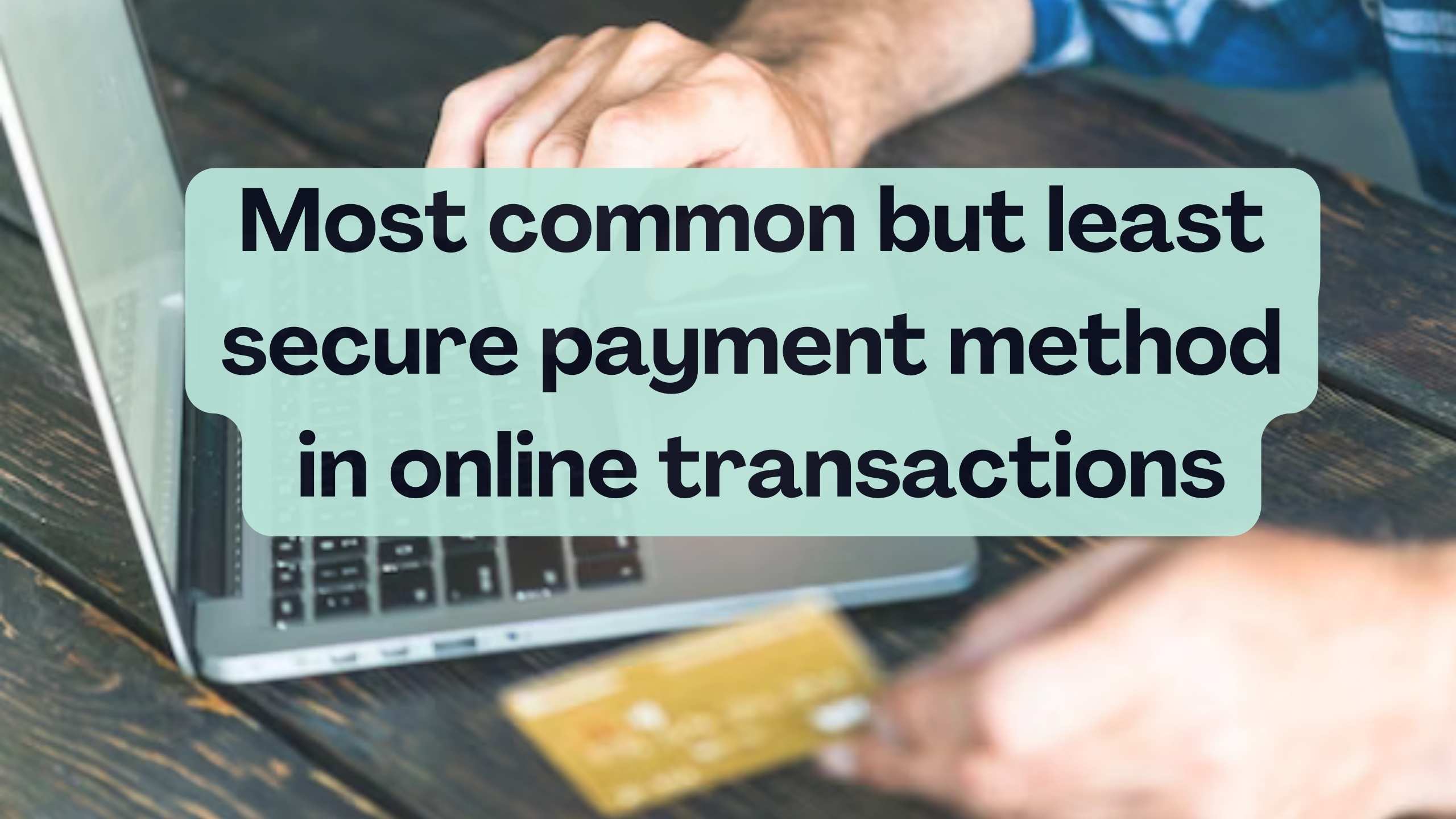Most common but least secure payment method in online transactions


Unveiling the Risks: The Most Common but Least Secure Payment Method in Online Transactions
In the digital age, online transactions have become ubiquitous, revolutionizing the way we shop, pay bills, and conduct business. Amidst the convenience and efficiency offered by various payment methods, there lurks a hidden danger: the prevalence of common yet insecure payment options. Join us as we delve into the realm of online payments to uncover the most common but least secure method, shedding light on the risks and implications for businesses and consumers alike.
Unraveling the Dangers of Common Payment Methods
1. Credit Card Payments
Credit cards stand as one of the most widely used payment methods in online transactions. With their widespread acceptance and ease of use, credit cards offer consumers unparalleled convenience. However, the centralized nature of credit card systems and the reliance on sensitive cardholder data make them a prime target for cybercriminals. From data breaches to identity theft, the vulnerabilities inherent in credit card transactions pose significant risks to both individuals and businesses.
2. Debit Card Payments
Similar to credit cards, debit cards facilitate seamless online transactions and ATM withdrawals, making them a staple in modern banking. However, debit card transactions are directly linked to users’ bank accounts, heightening the stakes in the event of unauthorized access or fraudulent activity. While debit cards offer limited liability protection, the repercussions of financial losses and compromised personal information can be substantial.
3. Online Payment Platforms
The advent of online payment platforms, such as PayPal, Venmo, and Cash App, has revolutionized peer-to-peer payments and e-commerce transactions. These platforms streamline the payment process, offering users convenience and flexibility. Nevertheless, concerns persist regarding the security of personal and financial data stored within these systems. Instances of account hijacking, unauthorized transactions, and phishing scams underscore the importance of robust security measures and vigilant user practices.
4. Bank Transfers
Bank transfers represent a direct method of transferring funds between bank accounts, bypassing intermediaries and transaction fees associated with credit and debit card payments. While bank transfers offer a secure means of payment, they are not immune to risks. Unauthorized access to banking credentials, phishing attacks, and fraudulent wire transfers remain persistent threats, necessitating stringent authentication protocols and enhanced cybersecurity measures.
5. Cryptocurrency Transactions
Cryptocurrencies, such as Bitcoin and Ethereum, have garnered widespread attention as decentralized digital assets offering anonymity and autonomy. While blockchain technology underpinning cryptocurrencies provides a layer of security against fraud and tampering, the volatile nature of digital currencies and the prevalence of hacking incidents underscore the inherent risks associated with cryptocurrency transactions.
Mitigating Risks with Secure Payment Solutions
In an increasingly interconnected world, safeguarding sensitive financial information and mitigating cybersecurity risks are paramount. Businesses and consumers alike can mitigate the risks associated with online transactions by adopting secure payment solutions and adhering to best practices in cybersecurity hygiene. Let’s explore a curated selection of SaaS products designed to fortify payment security and enhance transaction integrity:
Stripe
Stripe – A leading online payment processing platform, Stripe offers secure payment solutions for businesses of all sizes, including robust encryption protocols and comprehensive fraud detection tools.
PayPal Business
PayPal Business – PayPal’s suite of business solutions provides secure payment processing, invoicing, and financial management tools, empowering businesses to transact with confidence.
Square
Square – Square’s integrated payment ecosystem encompasses point-of-sale solutions, online payment processing, and secure payment gateways, enabling businesses to accept payments securely across diverse channels.
Authorize.Net
Authorize.Net – As a leading payment gateway provider, Authorize.Net offers secure payment solutions for businesses seeking seamless integration with e-commerce platforms and robust fraud prevention measures.
Braintree
Braintree – A subsidiary of PayPal, Braintree provides scalable payment solutions for businesses, featuring advanced security features, tokenization, and seamless payment experiences.
Conclusion: Prioritizing Security in Online Transactions
As the digital landscape continues to evolve, the imperative of prioritizing security in online transactions cannot be overstated. By understanding the risks associated with common payment methods and leveraging secure payment solutions, businesses and consumers can navigate the digital realm with confidence and peace of mind. At Subscribed.FYI, we’re committed to empowering businesses and individuals with the tools and insights needed to optimize their digital operations. Sign up today to access exclusive deals on a wide range of SaaS products, including top-tier payment solutions, and fortify your online transactions against potential threats.








